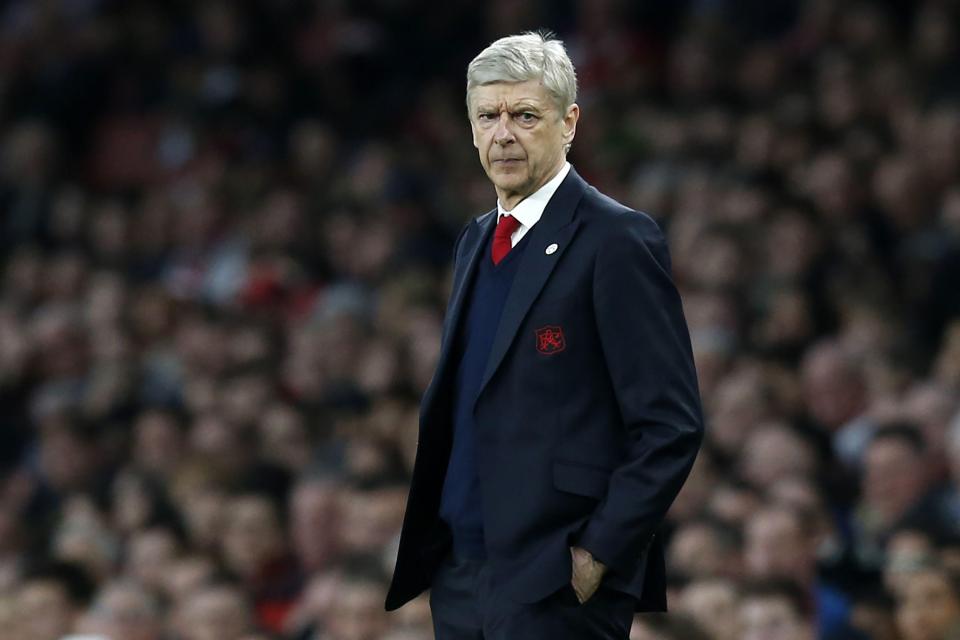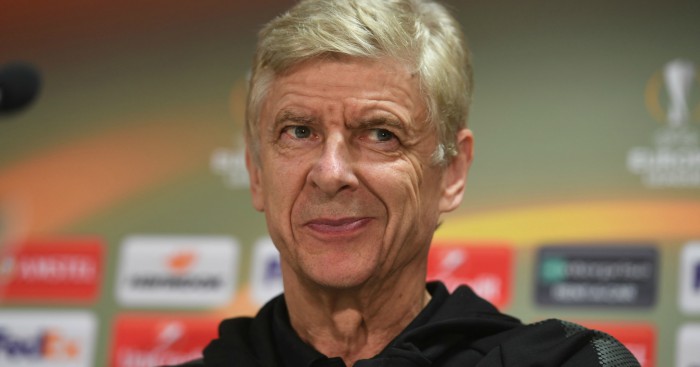Arsene Wenger’s Legacy is Intact, But His Reputation is Fading
It was never meant to end like this. Like a good Hollywood movie, Arsene Wenger was supposed to ride off into the sunset with the grateful Arsenal townsfolk cheering behind him.
But not like this, where he is the mad scientist, locked in the castle’s turret, babbling about finding the formula as the monster kills him while the lightning crashes outside.
Arsene Wenger created a monster and it’s eating him in front of our eyes.
Football uses terms confusingly. Legacy is viewed frequently from a short-term perspective. We think of it as the state of the squad and whether the youth set-up is producing first-team players. That’s not a legacy, it’s getting things working.
A legacy is something more ingrained in the culture of the club, something lasting. Wenger managed that at Arsenal, leading the transition of the grandest of ‘olde England’ clubs into a modern footballing entity.
One remembered for being the classiest of clubs in the manner in which it conducted business remains the same in the narcissistic world of the Premier League.
London Colney is a state of the art training facility and the Emirates a modern stadium which is the envy of many. Arsene Wenger had a massive input into both; he didn’t do it on his own, but his fingerprints are found on everything which affected the footballing side of Arsenal.
His legacy is intact. If he feared for its future, he need not. These are the tributes to stand the test of time.
The same cannot be said of his reputation. A man who won two domestic doubles and went a season unbeaten in the Premier League can’t surely be worried about how he will be remembered.
Until ten years ago, nobody would have disagreed. Now, it isn’t so clear-cut.
The Moment The Dream Died
Even when the move to the Emirates happened, Wenger’s sides were remembered as vibrant. They played football as it was meant to be played. A swift passing game which was a delight to watch.
For a while, it seemed he was producing a blueprint and in 2007/08, the Premier League title was in his grasp. But it collapsed under the weight of Martin Taylor’s dreadful tackle on Eduardo. The broken leg broke the young Arsenal’s spirit. When they needed a captain, William Gallas sat petulantly in the centre circle after a 2–0 lead disappeared.
Something died in Arsenal that day, we just didn’t know it at the time. From the peak of challenging for the title, Arsenal slumped into a cycle of fighting for fourth place and losing in the early knockout rounds of the Champions League.
The situation at the club was summed up in 2015/16. Leicester City were being reeled in by the Gunners and arrived at the Emirates on Valentine’s Day. They took the lead, but Arsenal levelled before a Danny Welbeck header in the dying seconds gave them three points and the title race was back on.
One month later, they were out of the Champions League at the hands of Barcelona, out of the FA Cup, and out of the title race after two defeats and a draw saw a ten-point gap open at the top of the table.
Arsenal collapsed; there was no backbone, no substance to the squad as they flattered to deceive. Worse still, they were becoming predictable. Opponents knew how to stifle them and this iteration of Wenger’s Arsenal, even with Alexis Sanchez and Mesut Ozil in the XI, lacked guile.
They were and remain, a dull side to watch.
A Crumbling Empire
Wenger’s reputation is being irredeemably damaged by this section of the club’s history. His contract renewal in 2014 in the emotion of the 3–2 victory over Hull City was a mistake; the two-year extension signed last year was pure folly.
The Frenchman is a prickly character when questions are about him and his footballing philosophy. For many of his critics, it’s arrogance and a reason why those critics are growing in number and louder in voice.
2016/17 was pock-marked by protests, demanding the manager, board and owner to leave. Ticket prices don’t represent value for money and the lack of cohesive transfer policy grates. Arsenal’s weaknesses remain unchanged for a decade.
A lack of depth in key positions in the squad, aligned to players who wouldn’t be in a title-challenging club has left Arsenal drifting out of the top four and unlikely to return. Wenger’s touch in the transfer market for defensive players was always suspect, his Achilles heel. It’s not improving as the years pass by.
The club is building for a future without Wenger while he is still there. Sven Mislintat, the new head of recruitment, already found himself on the end of the Frenchman’s public barbs. Raul Sanelhi joins from Barcelona next month as head of football operations – Wenger’s loathed director of football by any other name- while Huss Fahmy is already looking for contracts.
Wenger’s job is becoming isolated, focussing purely on the first team squad and eroding his power base at the club. But he can’t give up; he freely admits he has nothing else in his life. Football is all.
While it may be at Arsenal until the end of this contract in 2019, it seems unlikely he will be at the Emirates after that as anything other than managing the opposition or an interested spectator in the stands.



